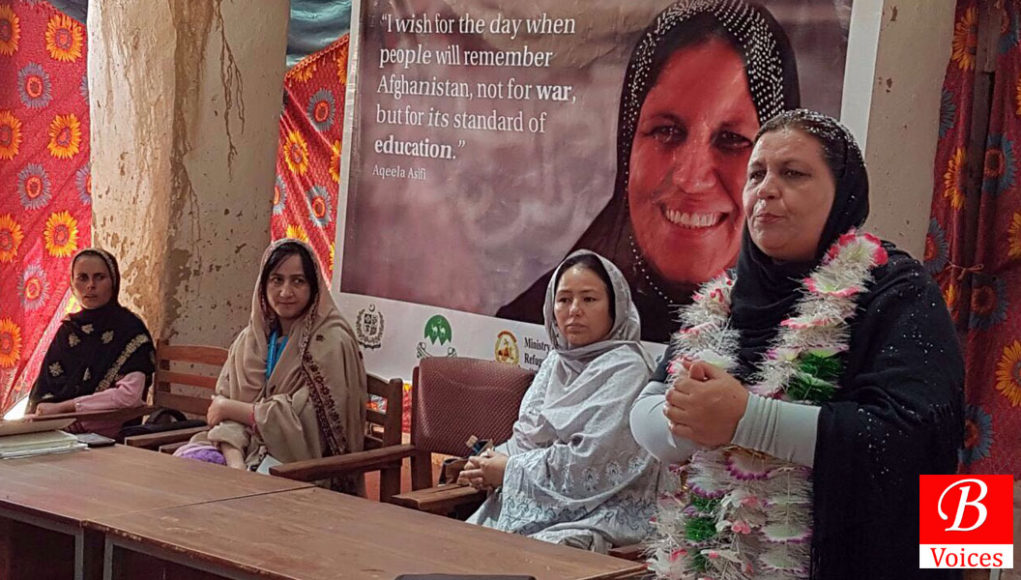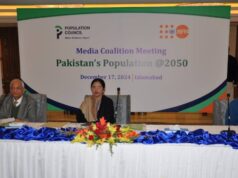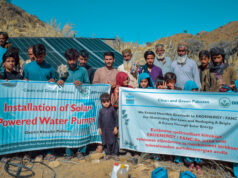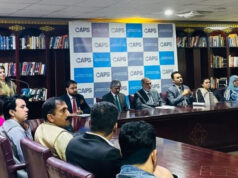Quetta: The UNHCR Nansen Refugee Award Laureate, Aqeela Asifi has said, that, investing in education means investing in the future of a nation, without which no country could develop and prosper.
She was addressing a gathering organized in her honor by the UN Refugee Agency and its partner agency WESS at the University of Balochistan. The event was held to pay tribute to Mrs. Asifi’s tireless efforts in bringing education to some of the most underprivileged Afghan refugee girls.
Mrs. Asifi was on a three-day mission to Balochistan for the first time. Her visit was aimed at highlighting the importance of education for children in exile. During her stay, she also visited Saranan Refugee Village, where she held meetings with community elders, teachers, students and their parents.
In her interaction with refugee teachers and parents, Mrs. Asifi underlined that children and youth who are not in schools, do not benefit from their internationally established right to basic education, and are at greater risk of exploitation, including early marriage and child labor.
On the last day of her visit, Aqeela Asifi attended an event at the University of Balochistan. Asifi in her address noted that an educational system should not only be focusing on teaching young people how to make a living but also teach them how to make a life. “Only then we would achieve our objective of a progressive society.” She added.
Also present at the occasion were Vice Chancellor, University of Balochistan Prof. Dr. Javid Iqbal; Afghan Consul General Waheedullah Momand; Secretary Education Balochistan, Saboor Kakar; and Chief Executive WESS, Pervez Iqbal and a huge number of students.
Commissioner Afghan Refugees in Balochistan, Brig (Ret) Masud Ahmed in his speech also highlighted the importance of giving refugee children access to education. He said, “Educated refugees provide leadership in displacement situations and in rebuilding communities, recovering from conflict. Education provides knowledge and skill development that strengthen the capacity of our future generation to be agents of social transformation.”
Speaking at the occasion, Dinesh Shrestha, head of UNHCR in Balochistan said that, ensuring the provision of education to refugee children is a core component of UNHCR’s work both nationally and internationally. “Quality education that inculcates relevant skills and knowledge enables refugees to live healthy, productive lives and builds skills of self-reliance.” He added.
Mr. Shrestha informed that UNHCR’s education interventions are not limited to refugee children only, but the Agency is also providing assistance to refugee hosting, local communities through the Refugee Affected and Hosting Areas (RAHA) initiative.
Since 2009, UNHCR in Balochistan has supported more than 200 public schools under RAHA by improving the school infrastructure, provision of missing facilities like libraries, computer labs, latrines and classrooms.
Aqeela Asifi currently teaches children at Kot Chandana refugee camp, in Punjab province. She has been widely recognized for her brave and untiring dedication to education for refugee girls in Pakistan – while herself overcoming the struggles of life in exile.
Despite minimal resources and significant cultural challenges, Asifi has guided over a thousand refugee girls through their primary education, since she herself fled her native Afghanistan more than 23 years ago. In recognition of her services Aqeela Asifi was also nominated for the Global teacher Prize and she was among the top ten finalists.
Press Release
Share your comments!








